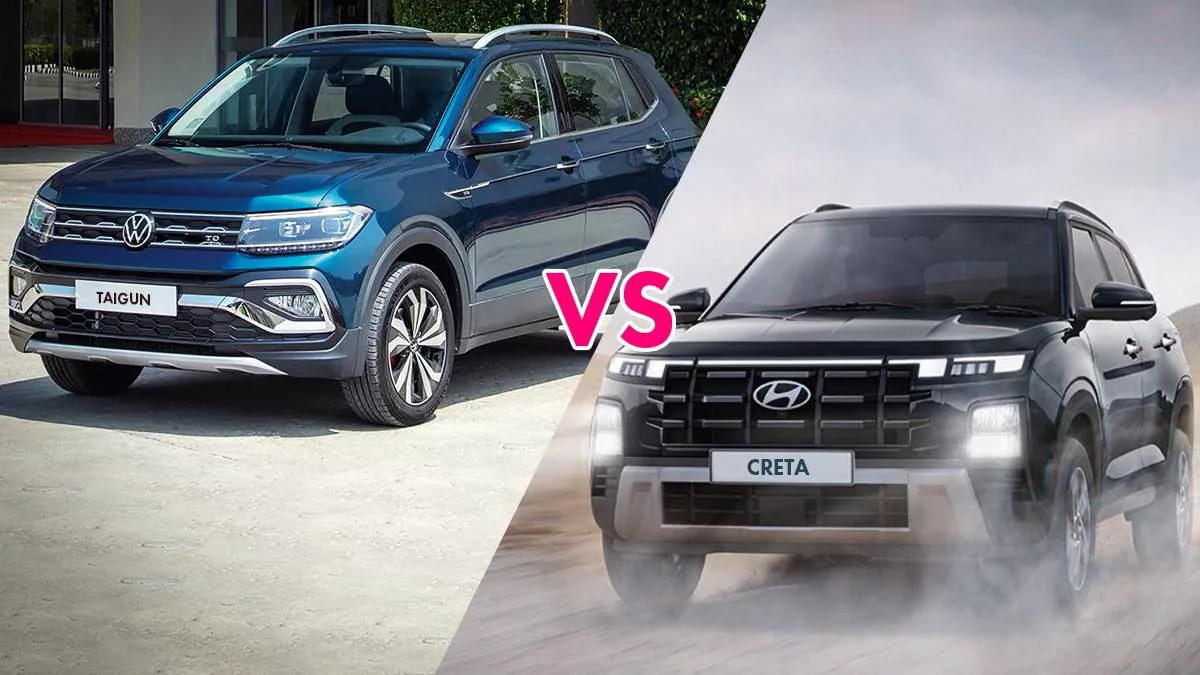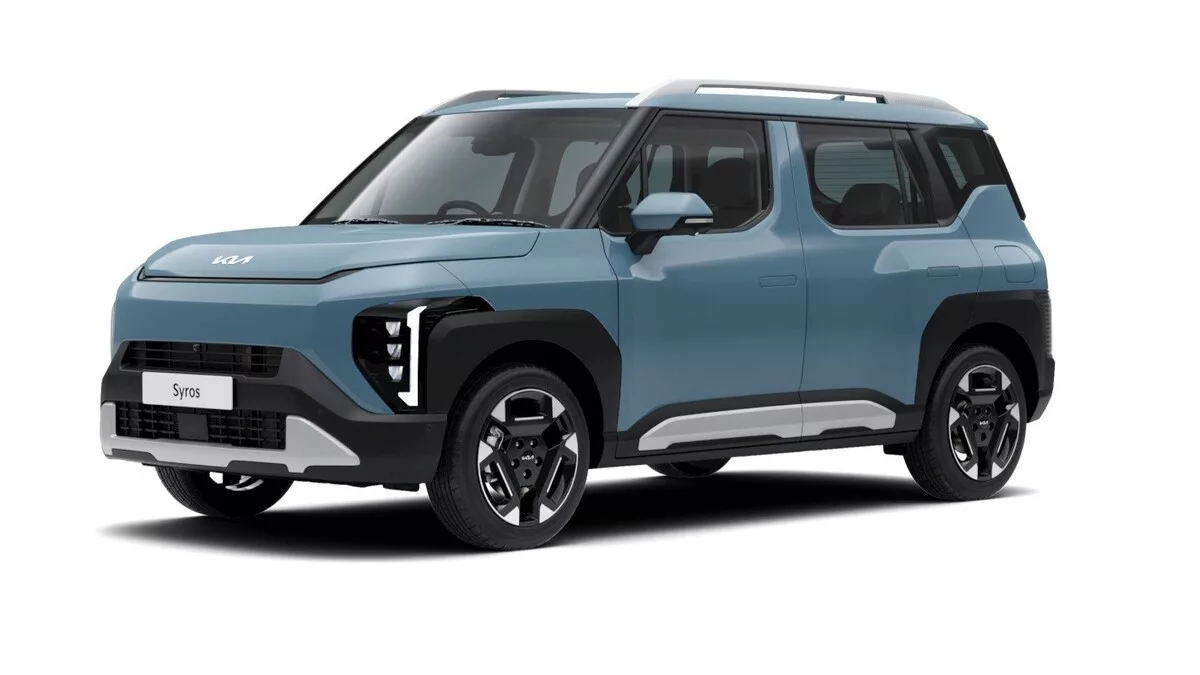Honda is a name that holds a very special place in many Indian hearts. Even today, the Japanese carmaker is held in high esteem for the reliability and premium quality of its cars. However, for a brand that once dominated almost every segment it had a car in, Honda has been losing ground in India. In the last three years or so, Honda has discontinued more cars than it has launched and today it has only two cars on sale. Such circumstances make the upcoming Honda Elevate a key decisive step towards Honda’s future in India. The Elevate has already made its global debut, looks like it has been built with a solid purpose.
Is it going to be an easy life for Honda Elevate? Honda Elevate is coming to the hottest and densest segment dominated by the legendary Hyundai Creta – the most successful car of the most successful foreign carmaker in India. A car that has been ruling the roost for over 8 years and remained unbeatable by even the biggest names including Maruti Suzuki. Many potential midsize SUV buyers have already started weighing the Elevate against the Creta. If you are one of them, this comparison of the Honda Elevate vs the Hyundai Creta will walk you through the key differences and help you decide between the two.
Honda Elevate vs Hyundai Creta: Dimensions

Honda Elevate | Hyundai Creta | |
Length | 4,312 mm | 4,300 mm |
Width | 1,790 mm | 1,790 mm |
Height | 1,650 mm | 1,635 mm |
Wheelbase | 2,650 mm | 2,610 mm |
Ground Clearance | 220 mm | 190 mm |
Boot Space | 458 litres | 433 litres |
Being able to comfortably accommodate five adults is the basic requirement a midsize SUV needs to meet. And it is fair to say, both these SUVs do a good job on this measure. However, some differences can make you prefer the Elevate over the Creta. For instance, the 2,650 mm long wheelbase of Elevate, which is 40 mm longer than that of the Creta, opens more legroom. Moreover, while the Elevate seems only 15 mm taller than Creta, this extra height gives it noticeably more headroom, enabling it to seat tall adults comfortably. Even the 458-litre boot space of the Elevate will appeal to Indian families more than the 433-litre boot that the Creta offers.

Of the Elevate’s seven rivals, Creta is the one which is the closest to it in terms of design language. Both Elevate and Creta feature a bold front fascia, where both have an upright front bumper. However, what gives Elevate a touch of sophistication is the slim headlights as compared to the bigger and more aggressive headlamps of Creta. As we look at the side profiles, both SUVs have the window glass housing kinked towards the C pillar, chunky black cladding running across the bottom end, and flared wheel arches.
Honda Elevate vs Hyundai Creta: Engine & Transmission
Honda Elevate | Hyundai Creta | |
Engine | 1.5 litre petrol engine | 1.5 litre petrol engine 1.5 litre diesel engine |
Power | 121 PS | 115 PS 150 PS |
Torque | 145 Nm | 144 Nm 250 Nm |
Transmission | 6-speed manual gearbox & 7-speed CVT automatic | · 6-speed manual gearbox as standard · 6-speed torque converter automatic for diesel engine · CVT for petrol engine |
Mileage | 17.8 – 18.4 km/l (expected) | 16.76 km/l (petrol) 21.35 km/l (diesel) |
In terms of mechanicals, both these SUVs have tried and tested offerings, even though the Elevate is yet to be launched.
While the petrol-powered Creta lags behind the Elevate in terms of power, it has been in the business for a while and considering Creta’s sales figures, it has surely been well-received. As reported, it is refined, decently powerful and delivers a smooth driving experience.
On the other hand, the world’s largest IC engine manufacturer, Honda has equipped the Elevate with its 1.5-litre DOHC i-VTEC petrol engine which also powers the Honda City. Honda’s i-VTEC technology has built an invincible reputation across the globe and does give the Elevate an upper hand in this comparison. Due to this technology, Honda’s engines offer the best distribution of power and torque across the rpm range, making them unparalleled in terms of all-round performance. Moreover, while the mileage figures of Elevate have not been revealed, they are expected to be close to Honda City’s 17.8 – 18.4 km/l mileage figures.
For transmission options, both SUVs offer a standard manual gearbox and optional CVT automatic with their petrol engines. And with CVT, both SUVs offer paddle shifters for maximum driving convenience. Moreover, a comparison of diesel engines is out of the question, as Elevate does not feature one and this makes the Creta the go-to option among these two SUVs.
Honda Elevate vs Hyundai Creta: Features & Comfort

Honda Elevate | Hyundai Creta | |
Infotainment system | 10.25-inch touchscreen infotainment system | 10.1-inch touchscreen infotainment system |
Music system | 8-speaker sound system | 8-speaker Bose sound system |
Climate control | Automatic | Automatic |
Ventilated seats | Not available | Front ventilated seats |
Adjustable steering | Tilt & telescopic adjust | Tilt adjust |
Drive modes | Not available | Drive modes: Eco, Comfort, Sport | Terrain modes: Snow, Mud, Sand |
Instrument cluster | Semi-digital instrument cluster | Digital instrument cluster |
Sunroof | Single-pane sunroof | Panoramic sunroof |
Adjustable seats (manual or electric) | Height adjustable driver seat (manual) | 8-way Powered driver seat |
Rear AC vents | Available | Available |
60:40 rear seat split | Available | Available |
Cruise control | Adaptive cruise control | Available |
Neither of the cabins of these two SUVs is short of the premium experience expected of a midsize SUV, but some elements in Elevate make its cabin feel richer than that of the Creta. This starts from the black and tan colour scheme which looks more premium than that of every other rival, let alone Creta. Next, the wooden and leatherette finish on the dashboard, leatherette padding on the centre console and doors, and the quality of plastic and upholstery, everything feels top-shelf for this segment. Moreover, the bolstering, especially on the front two seats, completely replicates that of the Honda City which is widely acclaimed for its unparalleled comfort.

On the other hand, the Creta beats the Elevate by a long distance in the feature department. The Hyundai Creta takes the lead over the Elevate with a panoramic sunroof, drive modes, cooled glove box, powered driver seat, air purifier, front ventilated seats, and ambient lighting. The 8-way powered driver seat offers better adjustability for the driver, while the drive and terrain modes add a great deal of driving convenience. Moreover, with the way it lifts the overall experience, the panoramic sunroof is one of the most sought-after features, especially when it comes to SUVs.
Honda Elevate vs Hyundai Creta: Safety Features
Honda Elevate | Hyundai Creta | |
G-NCAP Safety Rating | Not tested | 3-star |
Airbags | Up to six | Six |
ABS with EBD | Yes | Yes |
ESC | Yes | Yes |
Traction Control | Yes | Yes |
Automatic headlamps | Yes | Yes |
Rain-sensing Wipers | No | Yes |
Hill hold assist | Yes | Yes |
Hill descent control | No | No |
Rear sensors | Yes | Yes |
Rear parking camera | Yes | Yes |
ISOFIX Child seat anchor points | Yes | Yes |
ADAS | Yes | No |
In the past few years, safety has become a strong selling point and manufacturers’ efforts to improve on this front are evident in the mainstream cars available today. However, it is important to note that every manufacturer has its own way of making its cars safe. Like Tata and Mahindra, Honda tends to build strong bodyshells, whereas Hyundai has a leaning towards equipping its cars with as many safety features as possible. But, the case of Elevate vs Creta has certain intriguing realities, as unlike usual scenarios, it is a Honda car which has more safety features than a Hyundai car. Along with the common safety features between both SUVs, such as 6 airbags, hill assist, traction control, ESP, TPMS, the Elevate sports Level-2 ADAS safety suite that consists of collision mitigation braking system (CMBS), lane watch/ keep assist, auto high beam, road departure mitigation system, adaptive cruise control, and lead car departure notification. At the same time, Creta has a couple of advantages over Elevate in the form of disc brakes on all wheels and an electronic parking brake.
Honda Elevate vs Hyundai Creta: Price Comparison
Honda Elevate | Hyundai Creta | |
Base variants (Ex-Showroom) | Coming soon | Rs 10.87 – 13.24 lakh |
Mid variants (Ex-Showroom) | Coming soon | Rs 13.05 – 15.40 lakh |
Upper mid variants (Ex-Showroom) | Coming soon | Rs. 13.99 – 16.31 lakh |
Top variant | Coming soon | Rs. 17.53 – 19.20 lakh |
While the prices of the Honda Elevate have not been revealed yet, they are expected to be Rs 12 – 17 lakh. At these prices, the spaciousness, premium cabin, ADAS safety suite, and the reputed and reliable i-VTEC engine make the Elevate a great value-for-money deal. Moreover, when a car is from Honda, it comes with a trust factor which you cannot put a price on. At the same time, the Hyundai Creta with its long list of premium features is as valuable a deal as Elevate, if not better.
Honda Elevate vs Hyundai Creta: Summary
A choice between Elevate and Creta should be a matter of requirements rather than the price. If you want a solid safe SUV that has ample space to seat your family, delivers a comfortable ride, feels premium on the inside, and has a tried and trusted powertrain, then the Honda Elevate should well-suffice all your requirements. However, if you want an SUV which has all the features that collectively offer the best entertainment in this segment, look no further than the Hyundai Creta.
Honda Elevate vs Hyundai Creta: FAQs
Q. Among the Honda Elevate and Hyundai Creta, which one is bigger?
The Honda Elevate is 4,312 mm long, 1,790 mm wide, 1,650 mm tall, and has a wheelbase of 2,650 mm. The Hyundai Creta is 4,300 mm long, 1,790 mm wide, 1,635 mm tall, and has a wheelbase of 2,610 mm. Therefore, the Honda Elevate is 12 mm longer, 15 mm taller, and has a 40 mm longer wheelbase as compared to the Hyundai Creta.
Q. Among the Honda Elevate and Hyundai Creta, which one has more features?
The Honda Elevate has sufficient features to offer a comfortable ride. Its feature package includes LED headlamps and tail lamps, 17-inch alloy wheels, leatherette upholstery, leather-wrapped steering wheel, wireless charging, wireless Android Auto and Apple CarPlay, connected car tech, semi-digital instrument cluster, touchscreen infotainment system, Auto AC, rear AC vents, and paddle shifters. However, the Hyundai Creta has all these features and packs many more premium features such as a panoramic sunroof, drive modes, cooled glove box, powered driver seat, air purifier, front ventilated seats, and ambient lighting.
Q. What is the mileage of Honda Elevate?
While the mileage of the Honda Elevate has not been revealed yet since it is equipped with the same 1.5-litre DOHC i-VTEC petrol engine which also powers the Honda City, its mileage figures are expected to be close to Honda City’s 17.8 – 18.4 km/l mileage figures.
Q. Does the Honda Elevate have a panoramic sunroof?
No, the Honda does not feature a panoramic sunroof. It features a single-pane sunroof instead.
Q. What are the safety features of the Honda Elevate?
The safety features of the Honda Elevate include 6 airbags, ABS with EBD, hill assist, traction control, ESP, and a tyre pressure monitoring system. Moreover, the Elevate also sports Level-2 ADAS safety suite that consists of collision mitigation braking system (CMBS), lane watch/ keep assist, auto high beam, road departure mitigation system, adaptive cruise control, and lead car departure notification.





